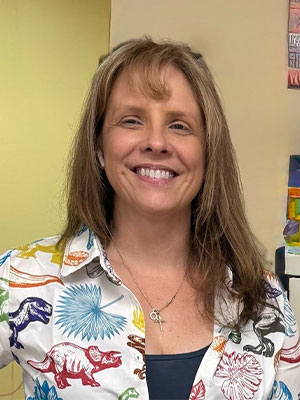Katherine DeStefano, PhD, LPC

Founder
New Horizons Counseling Services, Inc
Member Since 2010
What advice do you have for clinicians starting their own private practice?
“Recognize you are not a business person. You are a clinician going into business. Learn how to run a business and understand it takes time.”
ACA is a community of diverse, vibrant counselors and educators who are changing lives and the world at large. From a young age, Katherine DeStefano, founder of New Horizons Counseling Services, had a singular focus: to help people. She initially felt the best way to do that was to become a medical doctor. In college, she minored in psychology because she thought it would help her be a better doctor. But she soon realized mental health was her true passion and today she has her doctorate in clinical psychology.
We spoke to Katherine about her experience. Read on for more from that conversation, which has been edited for clarity.
Tell us about your background.
I went to Loyola University and earned my master’s in clinical psychology. I worked in the field as a therapeutic staff support and also as a youth pastor. Once I earned my master’s degree, I worked as a behavior specialist/mobile therapist. In 2008, I opened my practice and began my doctoral program, finishing in 2015. My dissertation was one of my best accomplishments; I was able to interview children in active therapy and share their experience as the consumer.
Tell us about your practice.
I’ve been in the field for 27 years and understand the mental health industry from policy to practice. I’ve owned my own practice, New Horizons Counseling Services, for 17 years. The company began as a sole practice and has grown into a licensed state clinic. My business model is an employee-centered one. I believe resources directed toward social service professionals ultimately return tenfold to those in need. Currently, I have five administrative staff and 11 clinicians. I’m also a working owner, which means I actively practice while running my business. I can’t imagine it any other way. Even on my worst day, I would come back and be a counselor the next day.
What drew you to pursue a career in counseling?
In fifth grade, I decided I wanted to go to medical school. In college (York College of Pennsylvania), I majored in biology to achieve that goal, but I realized my senior year that psychology was my passion.
What are your specific areas of expertise?
I have worked with people as young as three and people in their 80s. I started my outpatient career with children who were victims of sexual abuse and youth with conduct and other behavioral issues. I specialize in working with individuals who have pervasive anxiety disorders and thought distortions. Since 2020 with the impact of COVID, our practice is seeing many more people with personality disorders and psychotic disorders. We also treat people who are experiencing anxiety, depression, and trauma. All of my counselors are drug and alcohol and trauma informed, and we’re working on becoming more gender-diversity informed.
What is something most people may not know about you?
I love being creative. My whole brain is right brained. I appreciate art. I draw very well and I write poetry occasionally. Mickey Mouse is happiness and I have been collecting him my entire life. My first Mickey was given to me by my mammaw, who was the love of my life.
What advice do you have for others in the profession?
Being a clinician is about having a passion for people and being excited because you get paid to do it. It’s time intensive. You need to do it because you love what you do, not for the money.
What advice do you have for clinicians starting their own private practice?
Recognize you are not a business person. You are a clinician going into business. Learn how to run a business and understand it takes time. Take a [business] course. When I started my business, I had business acumen; I did not have taught business skills. I was given a scholarship to do a three month “mini-MBA,” which made all the difference and helped me to the acquire skills I needed.
What is one piece of advice someone has given you that you’ve found helpful?
Don’t apologize for taking people’s time when they’ve offered their time to you. Just say thank you. I had to learn to do that. Remember, you didn’t take something people weren’t willing to give. To this day, I tell people that all the time.
What do you value most about being an ACA member?
I value the opportunities to learn and be refreshed by the skills of other counselors.
